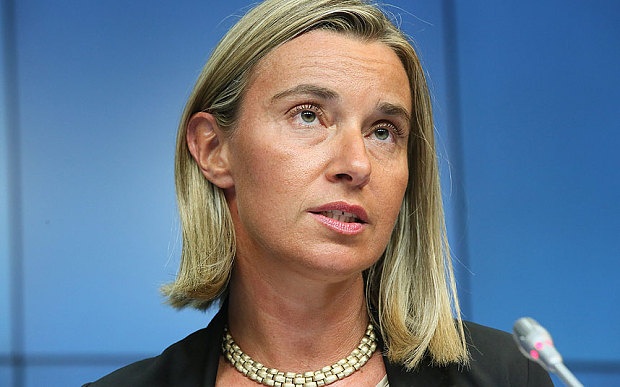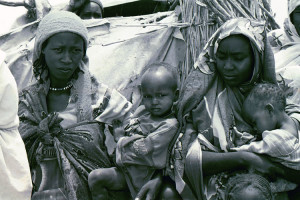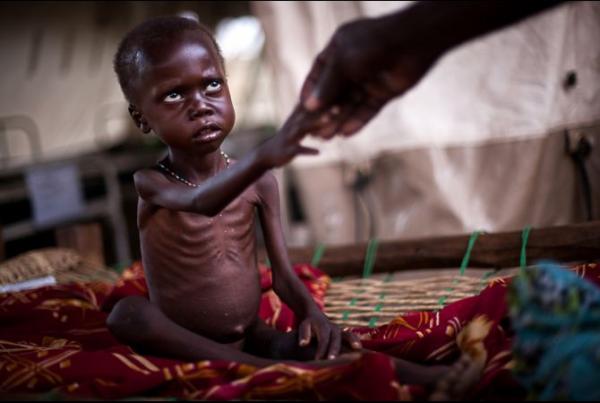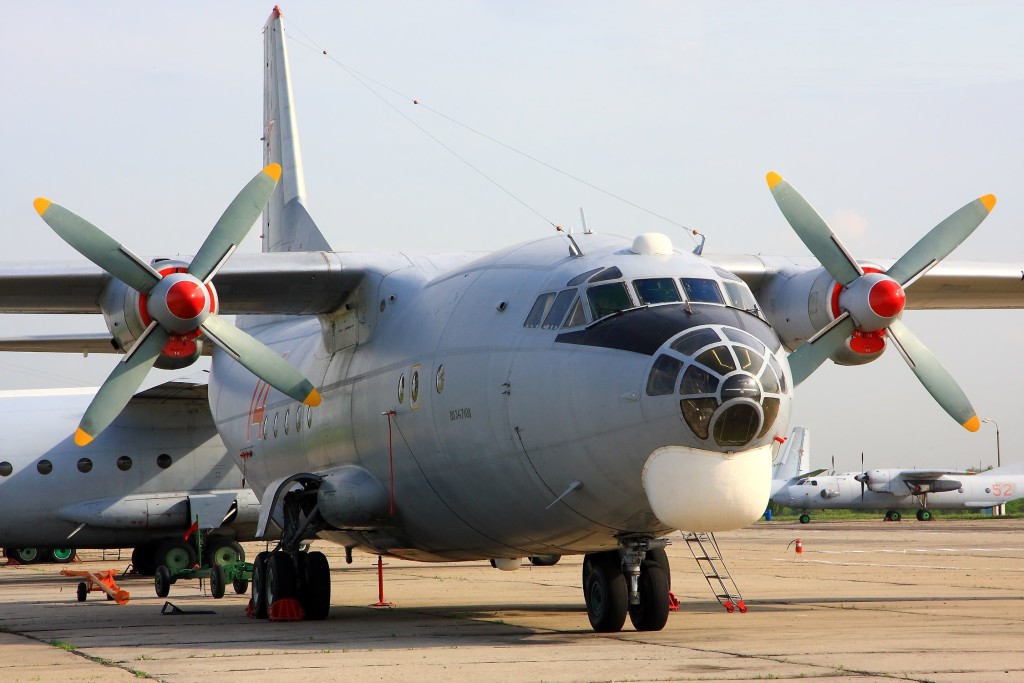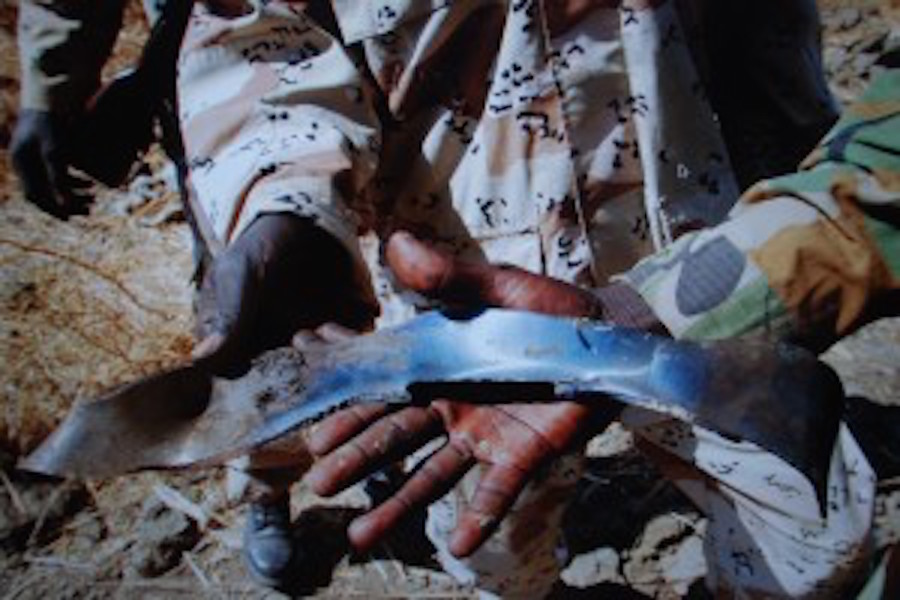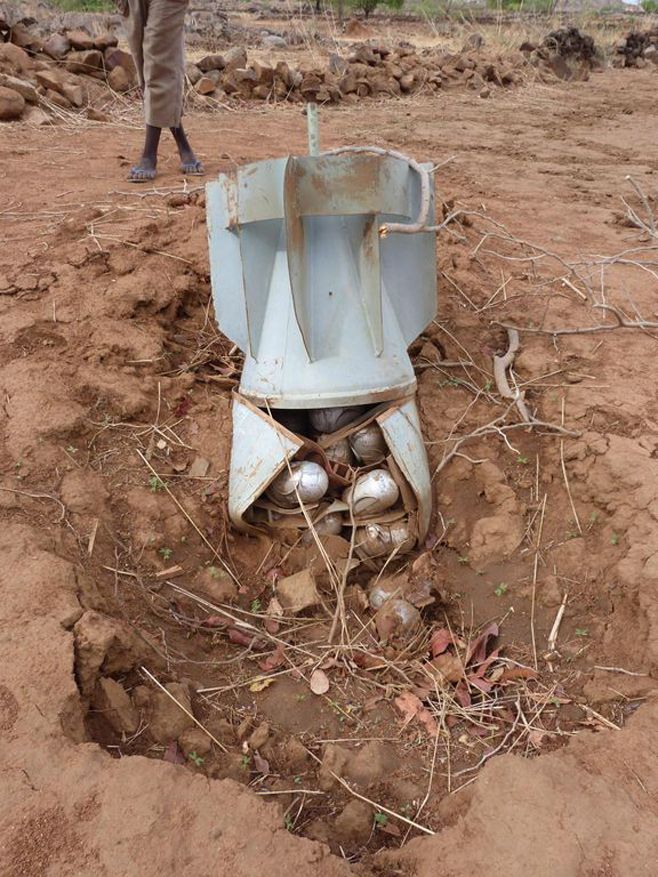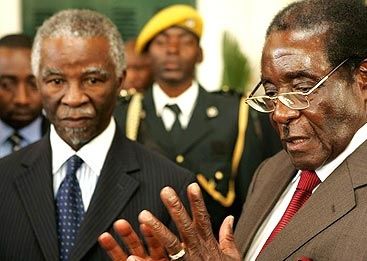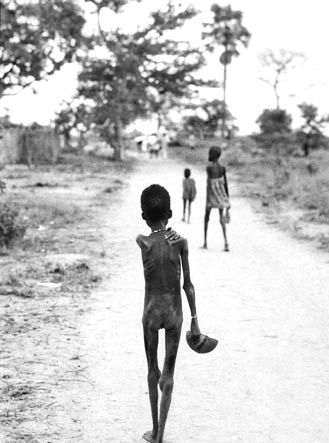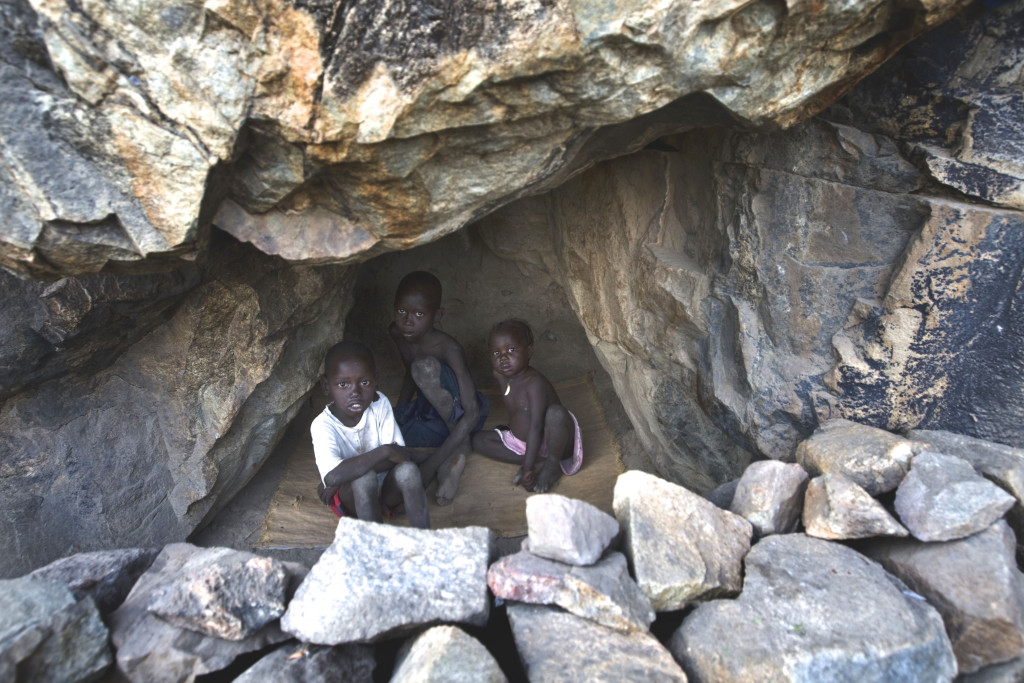Politicizing of Humanitarian Relief
The International Community Continues to Accept Khartoum’s Humanitarian Blockade in the Nuba Mountains and Blue Nile
Eric Reeves | June 20, 2016 | http://wp.me/p45rOG-1Ue
Unseemly haste and a disgraceful refusal to accept the moral consequences of their action have prompted European countries to accelerate rapprochement with the Khartoum regime in order to step the flow of African refugees to Europe. The European Union gives every sign of increasing political, diplomatic, and economic ties to the National Islamic Front/National Congress Party regime as a crude and ineffective means to this end. We should note clearly that the assistance now offered to the regime extends even to high-tech surveillance and registration equipment—nominally to assist Khartoum in containing refugees in “closed camps.”
This equipment will of course be used almost exclusively by the infamous National Intelligence and Security Services, Military Intelligence, and others in the vast security network that the regime depends on for its survival. A report by the German newspaper Der Spiegel (May 13, 2016) cites—without denial or rebuttal—EU documents that contain truly extraordinary revelations:
Minutes from the March 23 meetings and additional classified documents obtained by SPIEGEL and the German public television station ARD show “Report Mainz” show that the focus of the project is border protection. To that end, equipment is to be provided to the countries in question.
From these minutes we learn that:
Europe want[s] to send cameras, scanners and servers for registering refugees to the Sudanese regime in addition to training their border police and assisting with the construction of two camps with detention rooms for migrants. The German Ministry for Economic Cooperation and Development has confirmed that action plan is binding, although no concrete decisions have yet been made regarding its implementation…
Germany and the other EU member states … seem determined to push ahead with their pact with the [regime president, Omar al-Bashir]. Sudanese authorities say there have been numerous visitors from Germany in recent weeks who were there to discuss the construction of closed camps. When questioned about its role, Germany’s GIZ issued a written reply that there were no concrete plans in the country yet.
Was the EU aware of the dangerous waters into which they were venturing? Evidently they did:
The ambassadors of the 28 European Union member states had agreed to secrecy. “Under no circumstances” should the public learn what was said at the talks that took place on March 23rd, the European Commission warned during the meeting of the Permanent Representatives Committee. A staff member of EU High Representative for Foreign Affairs Federica Mogherini even warned that Europe’s reputation could be at stake.
Astonishingly, Ms. Mogherini retains her job, and continues to make fatuous statements about EU policy toward Sudan.
EU High Representative for Foreign Affairs Federica Mogherini
This is an appropriate point at which to note something of Khartoum’s regard for refugees and refugee issues. Most notably, more than 300,000 Darfuri refugees, desperate to return home, are trapped in eastern Chad by the regime’s ongoing genocidal counter-insurgency in Darfur itself. All of Darfur is insecure, but the extent of ethnically-targeted violence in East Jebel Marra and Jebel Marra during the past three dry seasons makes clear that a great many of these refugees will have nothing to return to. The UN High Commission for Refugees, tired of the refugee crisis in eastern Chad, is making permanent settlement—with Chadian nationalization—the only alternative to returning to Darfur. The UN’s World Food Program is doing its part by allowing rations for refugee camps to drop to what is effectively only about one third of the 2,100 kilocalories daily necessary for health human existence.
Darfuri refugees in eastern Chad, 2009 (photograph by Mia Farrow)
Darfuri refugees in eastern Chad, 2016
On another front in the world-wide refugee crisis, Human Rights Watch recently reported on Khartoum’s forcible deportation of more than 400 Eritrean refugees—some of whom had been formally recognized as such by UNHCR. Khartoum, Human Rights Watch Reports, has also denied access to claimants to refugee status—an extremely ominous sign. Both are conspicuous and egregious violations of international humanitarian law.
Moreover, we may be sure that the high-tech, “closed camps” that Germany has taken lead in committing to building will be nothing short of concentration camps—with people “concentrated” on the basis of ethnicity, nationality, race, and religion. And we may be sure that UNHCR will continue to be denied access as the regime deems necessary. That such camps will be built by Germany, given its own history with such camps, is utterly shocking.
This concern for imposing a “refugee embargo” on people of African nationalities is particularly perverse, since it mirrors Khartoum’s own embargo on humanitarian relief aid to the civilian populations of South Kordofan and Blue Nile. People in areas controlled by the Sudan People’s Liberation Movement/Army-North (SPLM/A-N) have been denied international assistance for five years.
Regime officials have made explicit their determination that these areas will not “become another Darfur,” in which international humanitarian organizations might provide food assistance to severely malnourished children and adults, or provide desperately needed primary medical care. Of course Darfur itself continues to suffer from dramatically declining international humanitarian capacity and constant harassment of relief organizations—including by means of violence. For all thirteen years of the Darfur conflict Khartoum has systematically denied relief access to various points in Darfur. The regime has expelled more than two dozen of the world’s finest relief organizations during this time, as well as targeting for expulsion senior officials of the UN and nongovernmental relief organizations.
This is the face of the regime with which the EU is now negotiating with to serve as bulwark against the African refugee flow to Europe. That such negotiations should occur with no commitment to seeing the end of the humanitarian blockade on South Kordofan and Blue Nile is especially shameful—and reveals a deep cynicism about devoting the diplomatic and political resources necessary to change Khartoum’s behavior, including pressure in the form of EU financial and economic sanctions similar to those of the U.S.
Life in the Nuba Mountains of South Kordofan: a severely malnourished child. We have no idea how many tens of thousands of such children there are because Khartoum refuses to allow an international humanitarian presence, and hence there are no resources with which to conduct broad malnutrition assessments.
An Antonov-26 “bomber” (retrofitted Russian-made cargo plane) used to drop crude, shrapnel-loaded barrels bombs from high altitudes without benefit of bomb-siting mechanisms.
The shrapnel from the barrel bombs dropped by Antonovs can easily cut a human body in half
There have been a staggering number of innocent civilians wounded in the course of the past five years, many seen by Dr. Tom Catena, the only surgeon operating in the Nuba Mountains (photograph 2016, Tom Catena)
Khartoum’s use of inherently indiscriminate cluster bombs has been extremely well documented
The most conspicuous evidence of this cynicism is a willingness to see the truly critical issue of humanitarian access linked directly to political and military issues in the so-called “Roadmap for Peace.” The “Roadmap” comes from Thabo Mbeki, leader of the now conspicuously incompetent African Union High-Level Implementation Panel (AUHIP). (The original “Roadmap” to have been “implemented” was Mbeki’s foolish diplomatic effort of 2009, which failed miserably.) There are many issues that might be discussed in connection with the various terms of the current “Roadmap” so enthusiastically endorsed by the UN, the EU, the AU, and the Obama administration in the U.S. What I wish to argue here is that whatever the merits of the plan’s elements—and all in some sense require compliance by Khartoum of a sort for which there is no historical evidence—it is a diplomatic, finally moral error of the first order to link political and military issues to humanitarian access.
Such linkage can take the form of “bundling” issues together, as Mbeki insisted his Roadmap did:
For his part, Mbeki said the Roadmap met the most important demands of the “Sudan Call” force including the comprehensive ceasefire and allowing access to humanitarian relief in war areas besides the recognition of the NUP and the Sudan Revolutionary Forces (SRF) as partners in the national dialogue. (Sudan Tribune, June 3, 2016)
AUHIP Chair Thabo Mbeki (left), here with Zimbabwe’s savage dictator Robert Mugabe, who enjoyed South African political support while Mbeki was president of his country.
Or the linkage can take implicit form in the ignoring of Khartoum’s previous refusal to accept a call from the normally feckless African Union Peace and Security Council (AUPSC):
[The AUPSC] Expresses its grave concern about the ongoing conflict and humanitarian crisis in Darfur and the Two Areas, including the reported violations of humanitarian law associated with the conflict, and calls upon the parties to urgently reach agreements to facilitate and allow humanitarian assistance to reach those in need and to respect human rights and International Humanitarian Law. Council calls upon the Parties to take all necessary measures to create conditions for the safe, voluntary and dignified return of the displaced persons and refugees to their homes… (Communiqué of the 539th meeting of the PSC on the activities of the AU High-Level Implementation Panel (AUHIP) for Sudan and South Sudan, August 25, 2015)
That the various urgings of the AUPSC were simply ignored by Khartoum seems to have made no difference—either to the AUPSC itself or those international actors professing a concern for humanitarian issues in Sudan.
Let’s be very clear about this. For a variety of expedient reasons, the international community has found it appropriate to endorse an agreement, a “Roadmap,” that finally makes relief for suffering and dying human beings contingent upon various specific military and political steps, articulated by Mbeki in his “Roadmap,” which was fashioned in close coordination with the Khartoum regime itself. The agreement does not give singular priority to humanitarian access, nor does it offer a clear plan for how such access is to be achieved. It is revealing that Mbeki took the extraordinary step of signing his own agreement despite rejections by the Sudan Revolutionary Forces and political opposition groups in Addis: he and Khartoum remain the only signatories.
[Radio Dabanga reports (June 20, 2016) today that the opposition groups have agreed to sign the “Roadmap” provisionally, which hardly makes the “Roadmap” a true agreement, since whatever “provisions” the opposition groups have stipulated, they are extremely unlikely to be meaningfully accepted by Khartoum. This “provisional agreement” comes in the wake of heavy pressure on the opposition groups in Addis from U.S. special envoy for the Sudans, Donald Booth.]
By virtue of the international support for the Mbeki’s/Khartoum’s “Roadmap,” as well as excessive and asymmetrical pressure on the opposition groups, we may be sure that the “Roadmap” will remain configured as it is at present, i.e., a lifting of the humanitarian blockade on South Kordofan and Blue Nile will, in effect, remain politically and militarily contingent. Nothing changes with “provisional agreement” to the “Roadmap” by the opposition groups.
This is deeply immoral and sets an extraordinarily bad precedent for future conflicts.
KHARTOUM’S REFUSAL TO LIFT THE HUMANITARIAN BLOCKADE
Shortly after fighting began in South Kordofan in June 2011, and subsequently in Blue Nile in August 2011, the National Islamic Front/National Congress Party imposed a broad humanitarian embargo on areas in these two states under the control of the Sudan People’s Liberation Movement/Army-North (SPLM/A-N). Militarily, the SPLM/A-N essentially represents two divisions of the Sudan People’s Liberation Movement/Army (SPLM/A) as it had been organized during the long civil war (1983 – 2005). During that war, soldiers from both areas fought as part of the SPLA, and fully expected that they would be included in a meaningful way in the Comprehensive Peace Agreement (January 2005).
I well remember the determination of military and civil society leaders I met with in January 2003, insisting to me in the most vehement of terms that they would not be left out of the agreement that was clearly being negotiated. This was a moment following the Machakos Protocol (July 2002), guaranteeing South Sudan the right of a self-determination referendum, as well as the Cessation of Hostilities Agreement of October 2002 (CoHA)—but before the Naivasha negotiations were well begun. (Although I witnessed first-hand the extent of Khartoum’s violations of the CoHA, fighting had largely ended by February 2003.)
But despite their fierce determination not to be left out of this peace agreement—as they felt they had been left out of the arrangements for independence in 1956 and again with the Addis Ababa Peace Agreement (1972)—in the end, negotiations at Naivasha, Kenya did not culminate with a meaningful plan to address the profound grievances of the peoples of South Kordofan and Blue Nile. They were granted instead largely opaque plans for “popular consultations”—plans that never took meaningful form. The seeds of conflict in 2011 were sowed with the CPA of 2005.
When Khartoum quickly moved to impose a humanitarian embargo in June 2011 it was a reprise of what had occurred in the 1990s, when, inter alia, Khartoum fired artillery shells at planes attempting to land in places such as Kauda in the Nuba Mountains. Although the embargo was not airtight, either then or now, the effect in terms of malnutrition rates and morbidity was overwhelming. The same is true of Blue Nile currently.
In February 2012, the SPLM/A-N agreed to a humanitarian access proposal put forward not only by the UN and African Union, but by the Arab League as well. Even so, Khartoum refused the agreement, and despite various ambiguous noises from the regime about signing the agreement in some modified form, today—five years after it was first imposed—the embargo is still in place as Khartoum’s intransigence remains as great as ever.
For the past five years the people of South Kordofan have endured a relentless bombing campaign targeting civilians and civilian agriculture. Displacement must be measured in the hundreds of thousands, and local reports indicate some populations have a very high percentage of Severe Acute Malnutrition (SAM). For children, this is typically a death sentence. Overall mortality is very great but we have no adequate data—about morality, morbidity, or malnutrition. This is one extremely serious consequence of the absence of a humanitarian presence. As always, children—as is the case throughout Sudan—suffer most in such situations of acute deprivation.
As it has done many times in the past 27 years of brutal, tyrannical rule, the National Islamic Front/National Congress Party regime is attempting to create famine as a weapon of war, currently in South Kordofan and Blue Nile, as well as Darfur.
Khartoum’s campaign of aerial bombardment, targeting civilians and civilian agriculture, has driven many hundreds of thousands of people from their homes in South Kordofan and Blue Nile–to caves, to other parts of Sudan, and to South Sudanese refugee camps.
And yet despite the brutality of Khartoum’s conduct of war in South Kordofan and Blue Nile, despite the savagery of the ethnically-targeted destruction, rape, and murder in Darfur, the international community is prepared to link humanitarian access to other, non-humanitarian issues. These issues must be resolved, to be sure, although to the extent they depend upon Sudan enjoying a true “National Dialogue,” one part of the Mbeki “Roadmap,” we have to date no evidence whatsoever that the Khartoum regime takes such a “dialogue” seriously, but rather regards it as a means of prevarication and delay. Viewed in the context of the regime’s astonishing record of reneging on agreements—it is has never abided by a single one with any Sudanese party…not one, not ever—it is simply incomprehensible that a plan relying on unprecedented regime adherence to a signed agreement is taken seriously by the UN, the AU, the EU, and the U.S., all of which have enthusiastically endorsed the Mbeki “Roadmap.”
But most shamefully, none of these powerful international actors has faced squarely the essential moral issue posed by the “Roadmap”: can humanitarian access to desperately needy human populations ever be made contingent in any way upon political and military agreements? The question is made more urgent by Khartoum’s reprehensible record of violating, ignoring, and abrogating agreements—and its longstanding, supremely callous disregard for the well-being of the people of Sudan.
Humanitarian access to the South Kordofan and Blue Nile must be demanded unequivocally and unconditionally. The same is true of humanitarian delivery in Darfur. All economic assistance, all provision of new technology, all military assistance, all political rapprochement should be withheld until this most basic and essential demand is met.
